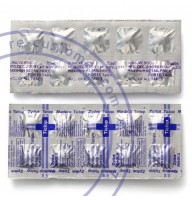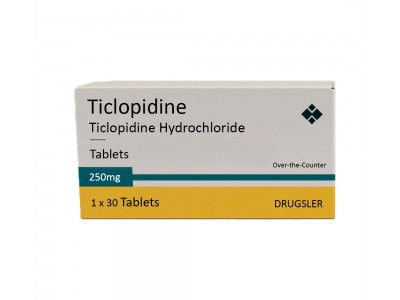No, ticlopidine is not considered a prodrug. A prodrug is a medication or compound that is administered in an inactive (or less active) form and is metabolically converted within the body into its active form by metabolic processes such as enzymatic reactions. The active form then exerts its therapeutic effect.
In the case of ticlopidine, it is administered in its active form. Once ingested, ticlopidine directly inhibits platelet aggregation and prevents blood clot formation by blocking the binding of adenosine diphosphate (ADP) to its platelet receptor, thus interfering with platelet activation. Therefore, ticlopidine does not require metabolic activation within the body to become effective.
While ticlopidine itself is not a prodrug, it is important to note that other antiplatelet medications, such as clopidogrel (Plavix), are prodrugs. Clopidogrel is administered in an inactive form and requires metabolic conversion in the liver to its active form, which then inhibits platelet aggregation in a similar manner to ticlopidine.
Understanding whether a medication is a prodrug or not can be crucial for healthcare providers when considering factors such as dosing, timing of onset of action, and potential interactions with other medications. Therefore, ticlopidine differs from prodrugs like clopidogrel in how it is administered and its mechanism of action within the body.

